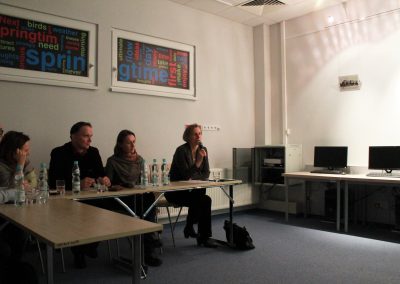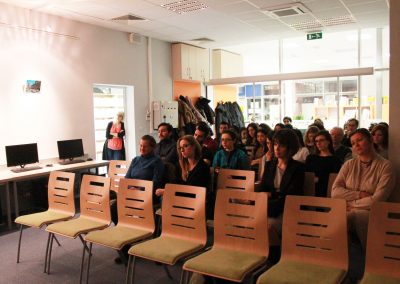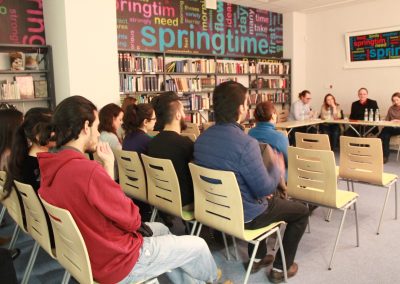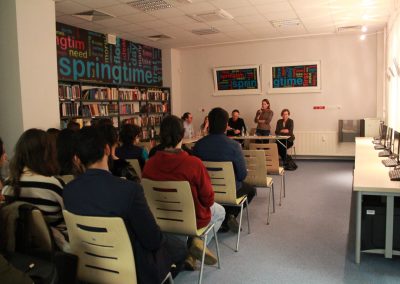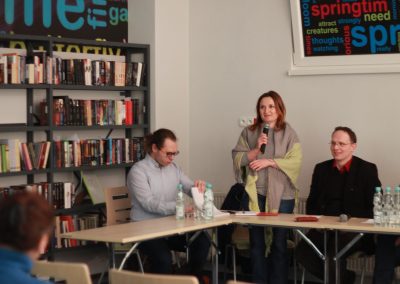On Wednesday we met in the Municipal Library Fil. 4 to participate in the debate entitled Gender ideology(ies): Man and woman – different by nature, inequal by society? We tried to find the answer to this question with our four guests: sociologists Borys Cymbrowski and Anna Czerner, philologist Katarzyna Molek-Kozakowska and biologist Elżbieta Pogoda.
We were aware that for most people the term gender is unfamiliar or even unfriendly, especially when someone is not a philologist or a social researcher, so we started with the basic questions: what gender is, how it exists in our respective fields of studies, and if there exists gender ideology. We can say that gender in general is about social consequences of being men, women or the others, because in the opinion of Elżbieta Pogoda even from a biological point of view there are more than only two sexes. And there is no evidence that one sex has an advantage over another.
In Polish media we encounter some false beliefs about the meaning of the word “gender”. But as Borys Cymbrowski mentioned it is a problem of confusion of nature with culture, because in the Polish language we have only one word (płeć) for gender and for sex. So some commentators confuse biological meaning with the cultural one. They accuse gender scholars of promoting a dangerous ideology which tries to convince people to choose their sex. As Anna Czerner said, the truth is that in the social sciences gender was a neutral category to analyse the relations between people in society, but unfortunately some institutions and politicians took one of the least popular topics in gender studies and used it as a basis to create and apply gender ideology as a political tool.
After that we focused mostly on language aspects within gender issues. Katarzyna Molek-Kozakowska indicated that for her it was easier to introduce herself in English than in Polish, because in Polish most names of academic professions have only a masculine gender, or even if it has a female gender, masculine forms sound more serious and more prestigious. But language is not a constant phenomenon – it is changing all the time. Twenty years ago we considered some female forms of words as strange, but today we take them for granted. We concluded that it is important to include more women-related forms to language, and it is one of the main catalysts of social changes in the public sphere.
We are really glad we could discuss it with you and with the citizens of Opole. We would like to thank you all for your presence and participation, and we hope to see you soon during another discussion. The aim of the whole debate was to clarify a little the problem of gender, but two hours is a short time when you are discussing such an important and complicated topic – so we treat this meeting only as a start. The debate is still open.
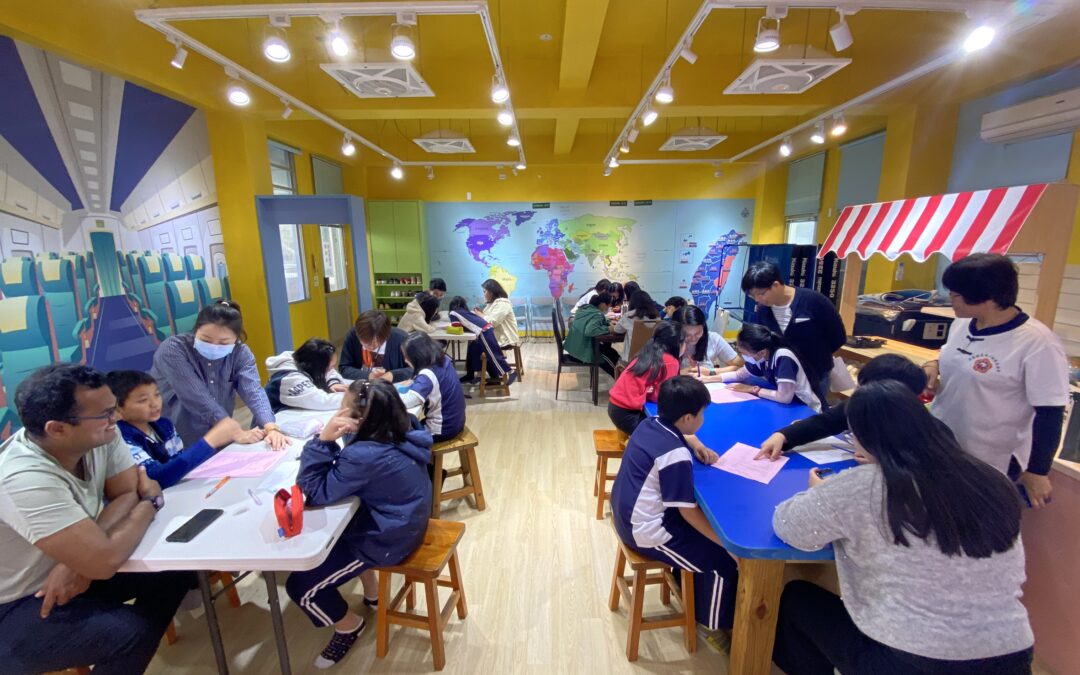
scholarship in Taiwan
Scholarship offers for exchange students in Taiwan! You can now apply for a scholarship in one of our two partner universities in Taiwan (grants supported by the Ministry of Foreign Affair, Taiwan): National Dong Hwa University Tunghai University It is a unique...
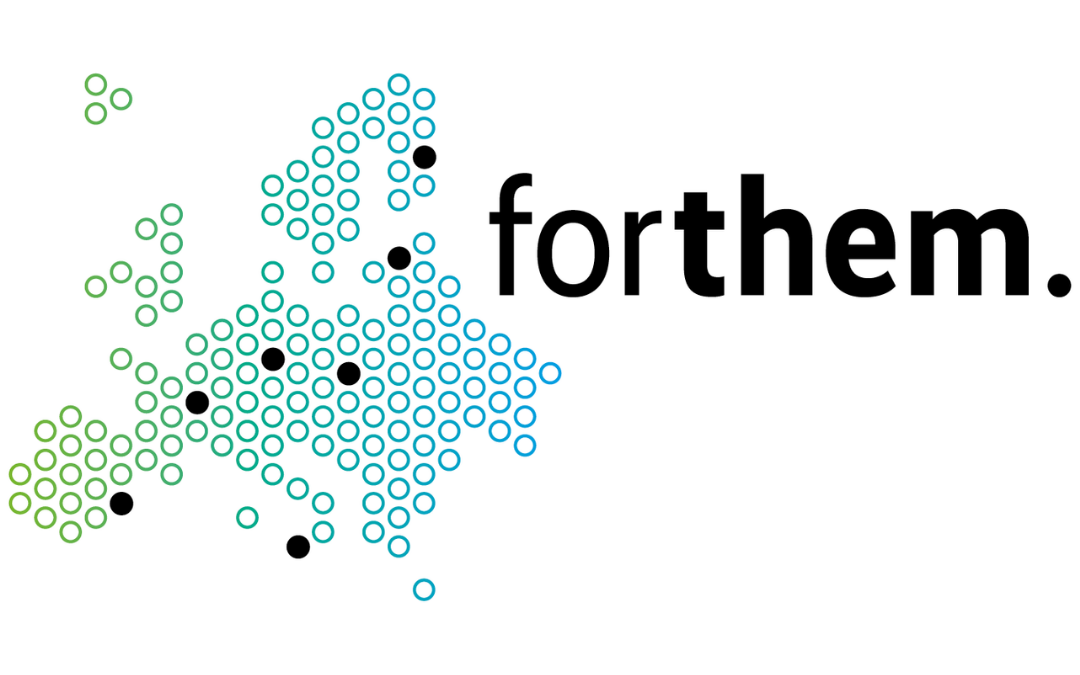
FORTHEM Campus at uB
FORTHEM Campus is a semester-long exchange, that combines studies and activities related to your discipline with a special themed programme. The first edition "Food and Fooding" will be organized by Université de Bourgogne in Dijon, France in autumn 2021. You have to...
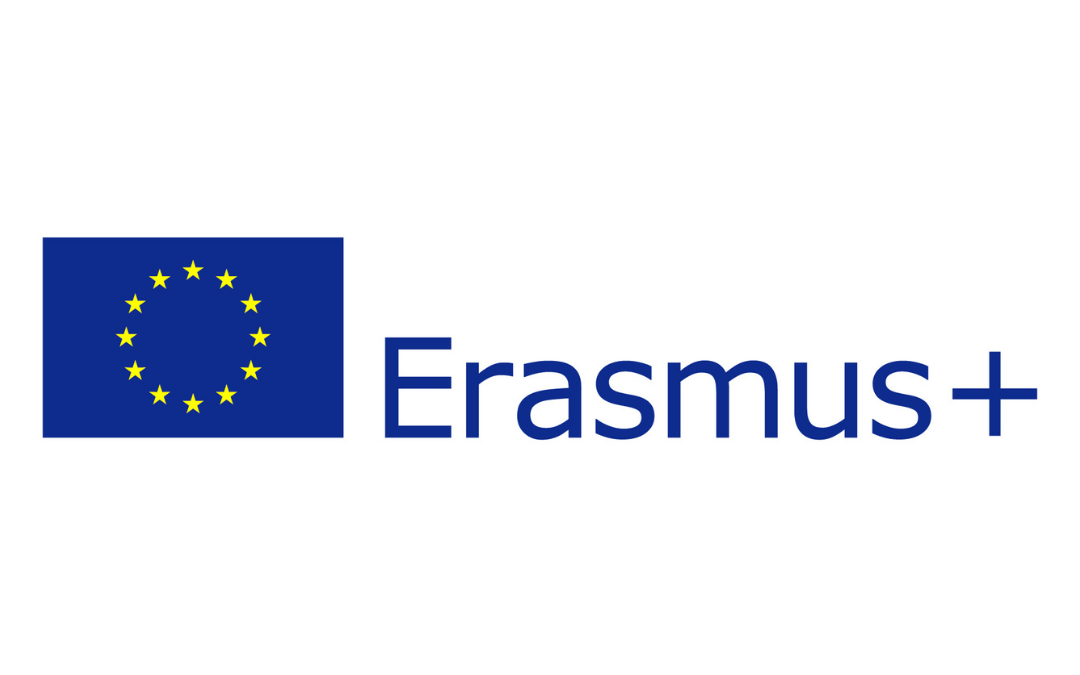
Albania and Montenegro
Dear Students, The only chance to study under the Erasmus+ Programme in Albania or Montenegro during the winter term 2021-2022. We have only 2 places for the best students! 5-mouth stay granted with 3500 EUR plus financial support for journey (275 EUR). The list of...
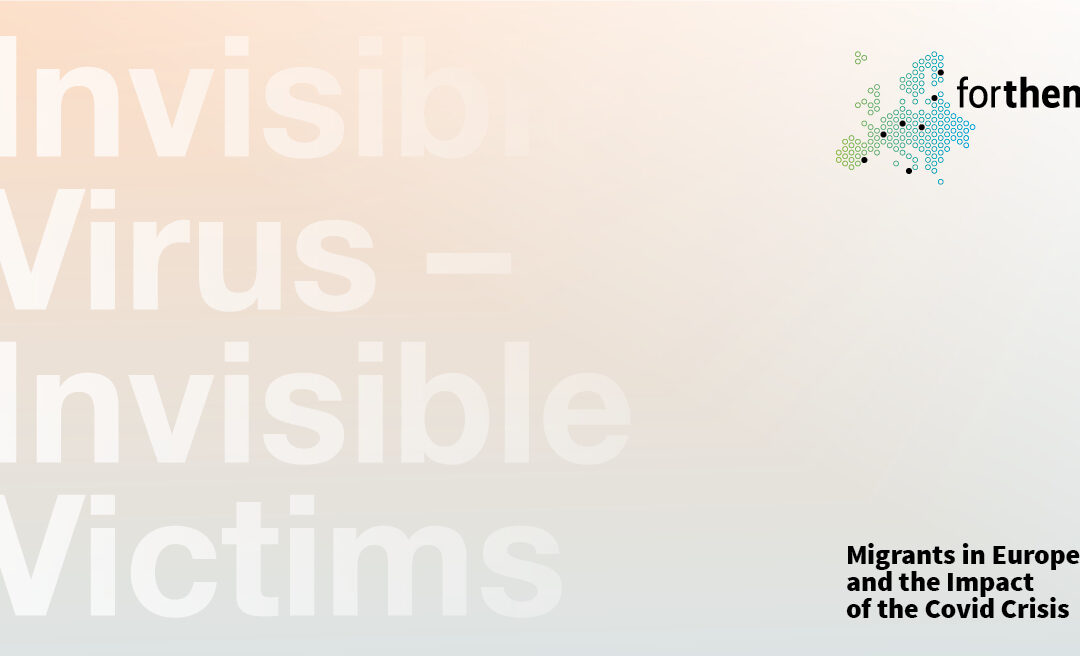
Digital Seminar by the FORTHEM Lab “Diversity and Migration”
Invisible Virus – Invisible Victims. Migrants in Europe and the Impact of the Covid Crisis You can now register for the digital seminar of the Lab “Diversity and Migration” on 20 and 21 April! FORTHEM Diversity and Migration Lab invites all interested students and...
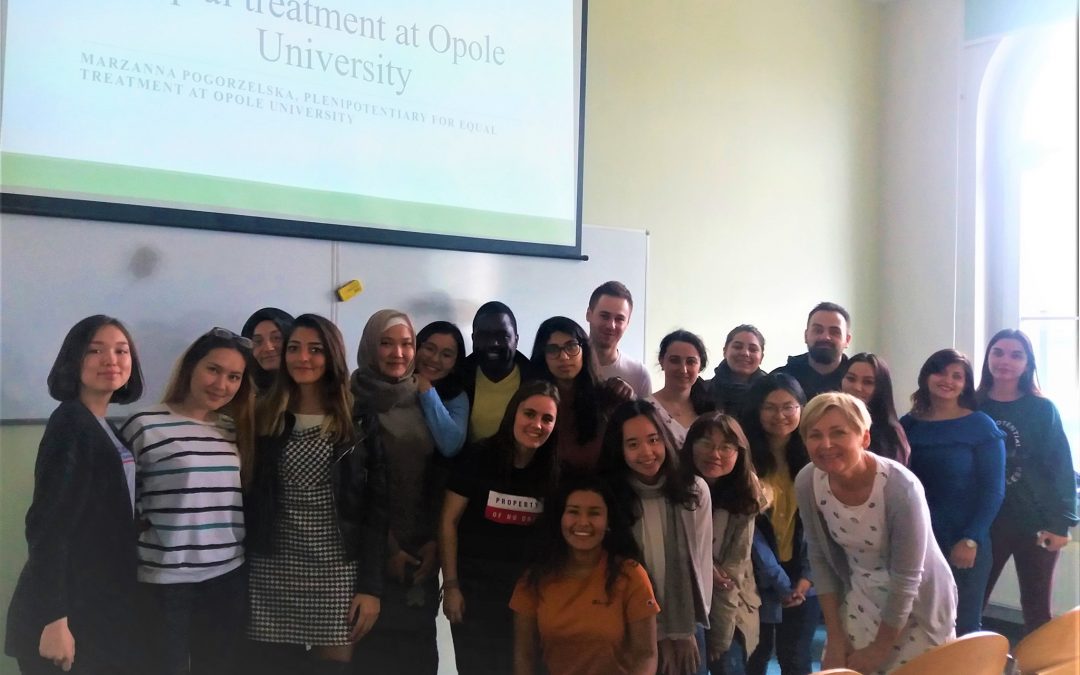
WE NEED TO TALK – workshop on stereotypes, discrimination and microaggression
Dear Students! The Plenipotentiary for Equal Treatment invites students of Opole University to the workshops on stereotypes, discrimination, and microaggression organized as a part of the FORTHEM project. Interactive classes with the participation of students...
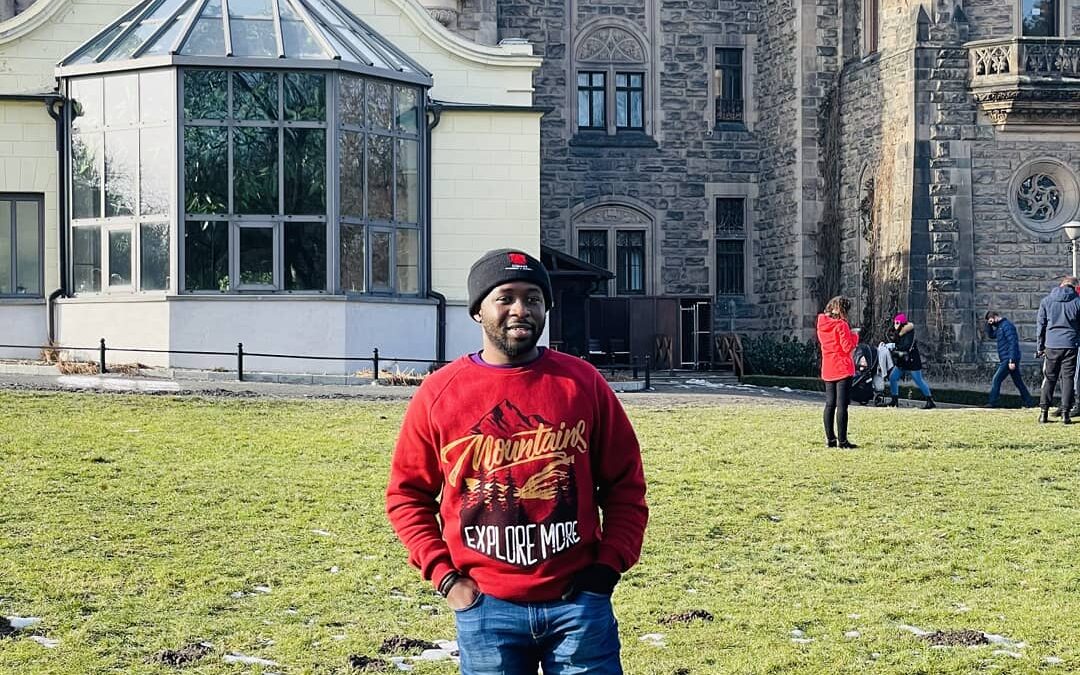
Polish Hospitality: If you go to a Pole on an empty stomach, you will certainly leave with a full stomach
Ahmed Omotosho from Nigeria, 1st-year student at the International Business programOur student Ahmed Omotosho is discovering Polish culture and is pleasantly surprised by the hospitality of Poles. Below, Ahmed shares his discoveries and encourages international...
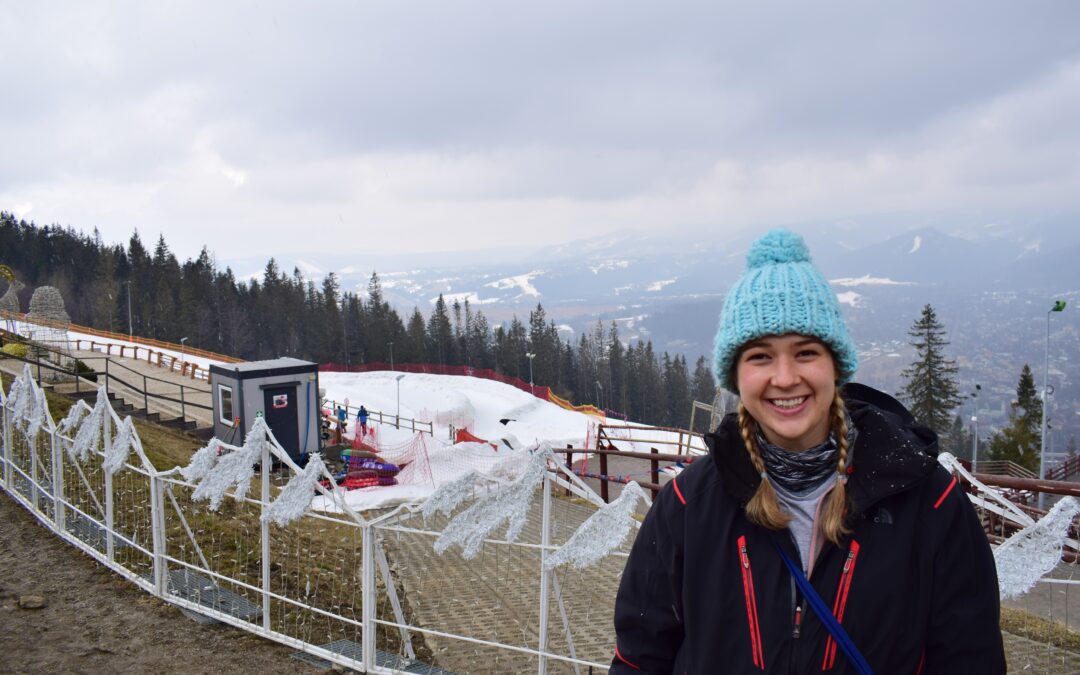
meet Julia
Some of you may already know Julia, our Fulbright English Teaching Assistant. She came to Opole for the first time in August 2019. Unfortunately, in the spring she had to return to the US due to the pandemic.But Julia did not forget Poland and as soon as the...
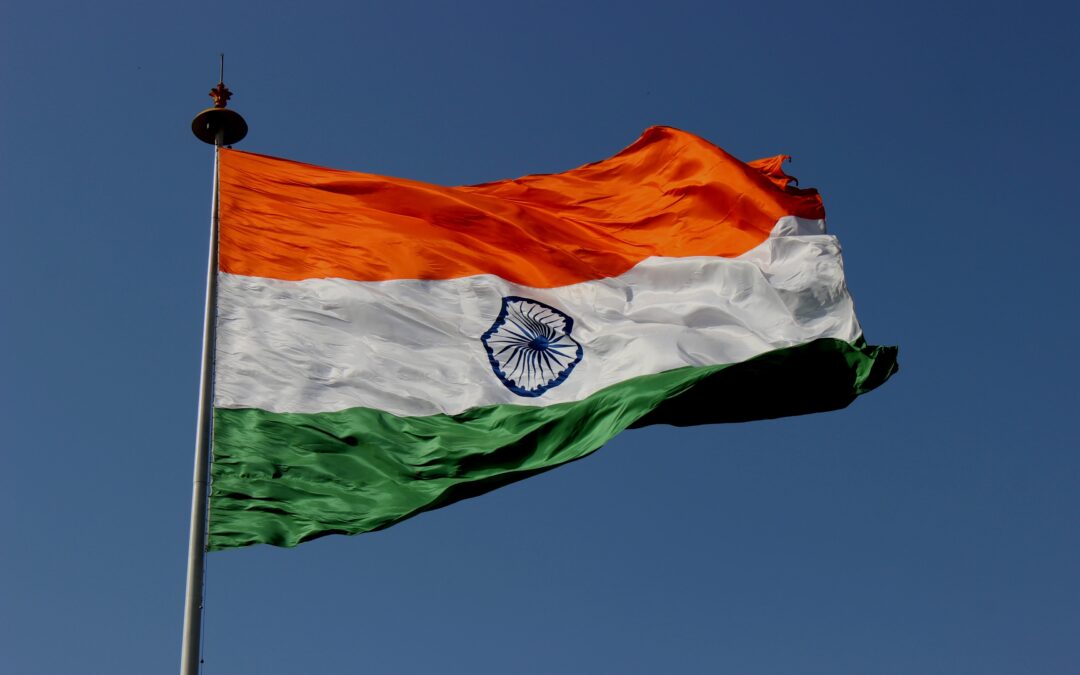
Indian Council for Cultural Relations Scholarship
Dear Students! The Indian Embassy in Warsaw has announced the new edition of the ICCR program under General Scholarship Scheme for the academic year 2021/2022. The scholarship is organized and co-funded by the Government of India and the Indian Council for...

short-term mobilities FORTHEM
FORTHEM aims to open up new possibilities for students to travel and study in these different universities. Between 15th of March and 20th of April 2021, students from all of the alliance universities are invited to apply for short-term mobilities! There are two...
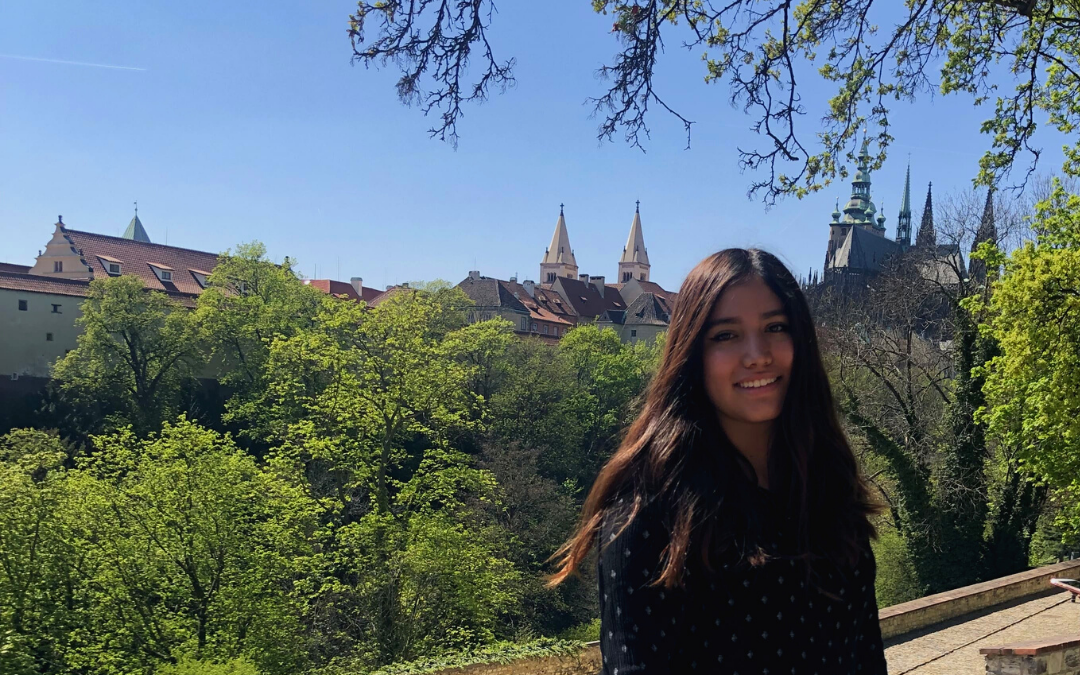
Alexa from Mexico
Alexa Villegas Estrada - third-year student at International Business program Dear Students, We are happy to share with you one more story of our amazing international student. Meet Alexa from Mexico, a third-year student at the International Business program.Why...
